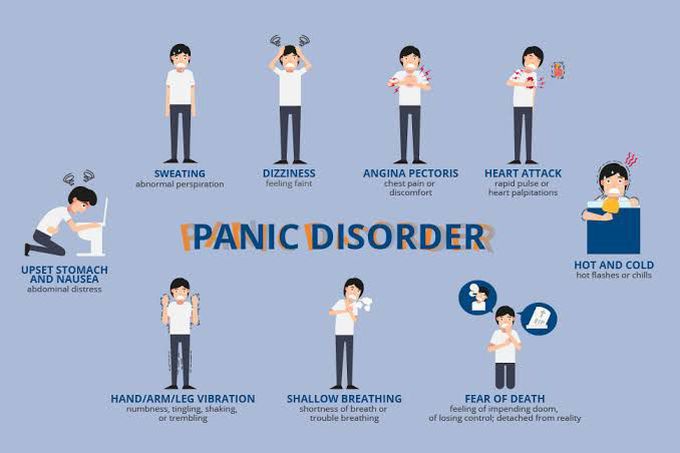


Causes and symptoms of panic disorder
As with many mental health conditions, the exact cause of panic disorder isn't fully understood. However, it's thought the condition is probably linked to a combination of physical and psychological factors. Read about the possible causes of panic disorder. It’s important to be aware that some physical conditions and disorders can have similar symptoms to those of anxiety. For example: mitral valve prolapse postural orthostatic tachycardic syndrome (POTS) anaemia paroxysmal atrial tachycardia – episodes of rapid and regular heartbeats that begin and end abruptly thyrotoxicosis – where large amounts of thyroid hormones are released into the bloodstream, causing rapid heartbeat, sweating, tremor and anxiety poorly controlled diabetes adrenal tumours – growths that develop on the adrenal glands (two triangular-shaped glands that form part of the kidneys) carcinoid syndrome – a set of symptoms caused by some carcinoid tumours that can develop in the cells of the endocrine system (glands that produce and secrete hormones) Zollinger-Ellison syndrome – causes overproduction of insulin and low blood sugar (hypoglycaemia) The symptoms of a panic attack can be very frightening and distressing. Symptoms tend to occur suddenly, without warning and often for no apparent reason. As well as overwhelming feelings of anxiety, a panic attack can also cause a variety of other symptoms, including: a sensation that your heart is beating irregularly (palpitations) sweating trembling hot flushes chills shortness of breath a choking sensation chest pain nausea dizziness feeling faint numbness or pins and needles dry mouth a need to go to the toilet ringing in your ears a feeling of dread or a fear of dying a churning stomach a tingling sensation in your fingers shivering shaking
Wendigo syndrome

